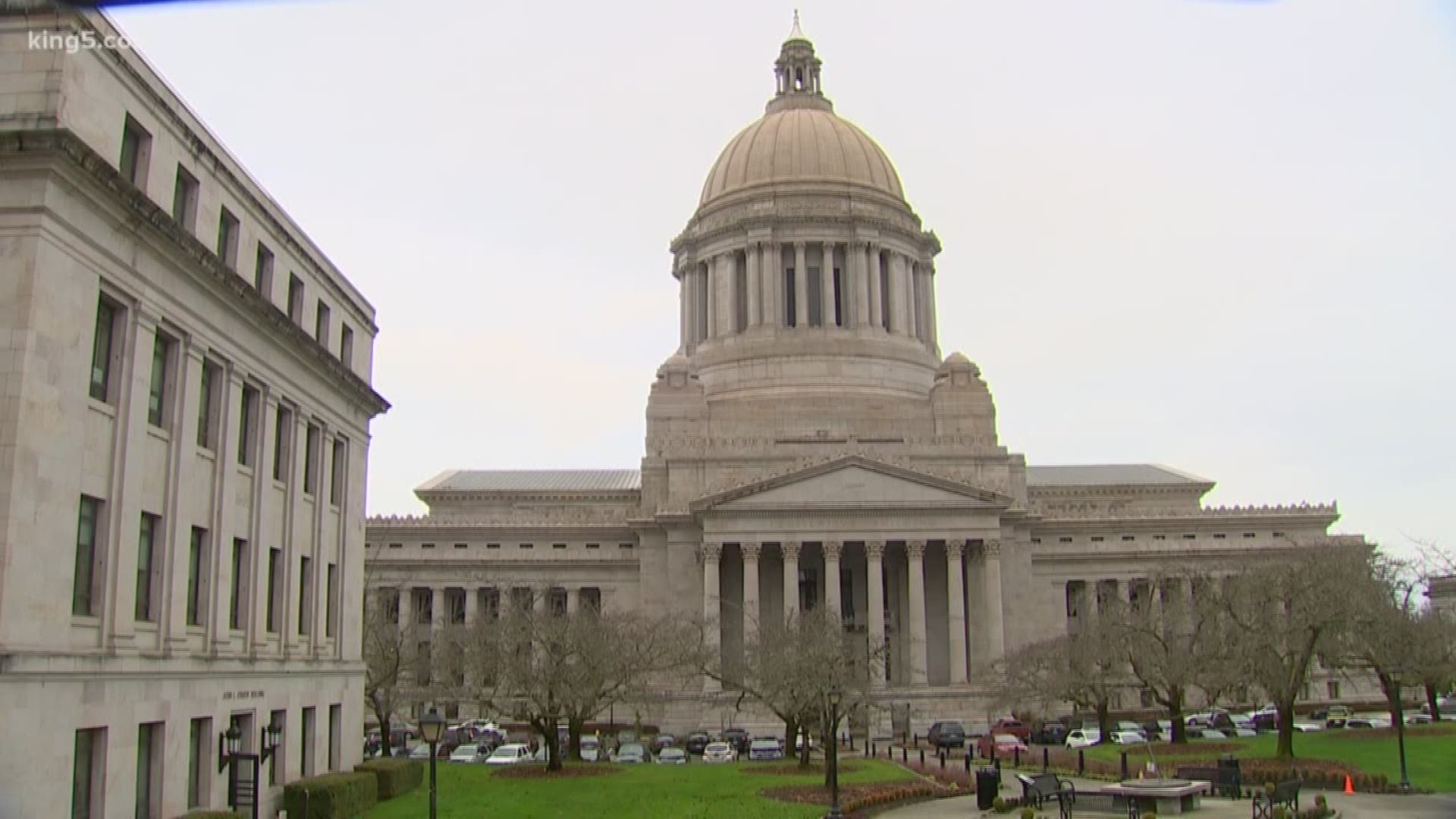House Democrats unveiled a two-year state budget proposal Monday that seeks $1.4 billion in new revenue, including a new capital gains tax on the sale of high-value stocks and bonds.
The Democrats' $52.8 billion proposal increases spending in several sectors of state government like K-12 education and the state's mental health system, including an expansion of community behavioral health beds and services.
The main portion of the revenue plan seeks to levy a 9.9 percent capital gains tax on earnings from the sale of stocks, bonds and other assets above $100,000 for individuals and $200,000 for those who file jointly. Fewer than 14,000 households would be affected by the new tax, lawmakers said. Retirement accounts, all primary residences, along with agricultural and timber lands, would be exempt from the tax, as would the sale of cattle, horses or breeding livestock.
Democratic Rep. Gael Tarleton, chairwoman of the House Finance Committee, said that the proposal is an effort to bring tax fairness to the state, which does not have a personal income tax.
"Wealth continues to concentrate in the hands of fewer and fewer individuals who pay less and less into critical public investments as a proportion of their accumulated wealth," she said. "This wealth is not generating the revenue we need to serve the interests and needs of 7 1/2 million Washingtonians."
Opponents of a capital gains tax say it's a type of income tax illegal under state law; supporters call it an excise tax. The debate is certain to end up in court if the Legislature approves the tax.
Under the proposal, the tax would start being collected in the second year of the biennium, July 1, 2020, and is expected to bring in $780 million that first year.
Republican Rep. Drew Stokesbary said that even if the tax was upheld by the courts, it's irresponsible for lawmakers to rely on it because of its volatility.
"If we have a recession coming up, it will be difficult to balance the budget if we're dependent on capital gains as part of state revenues," he said. "The fact of the matter is we can fund all of our priorities without raising taxes."
An additional $427 million through mid-2021 comes from an increase in the business and occupation tax on services provided by software engineers, accountants, doctors, attorneys, and others. Under the plan, that tax would increase from 1.5 percent to 1.8 percent, while large global technology companies could have a rate up to 2.5 percent. That money would expand access for students seeking grants for college and would increase capacity at colleges for high-demand programs, including computer science and nursing.
A change to the real estate excise tax would bring in about $130 million in the next two years. Currently, all property sellers pay a flat 1.28 percent rate. Under House Democrats' proposal, the rate remains the same for homes that sell between $500,000 and $1.5 million. But the rate increases to 2 percent the portion of the sale above $1.5 million but less than $7 million, and it jumps to 3 percent for the portion of sales above $7 million. For homes that sell for less than $500,000, the rate is reduced to .9 percent.
The budget proposal comes days after lawmakers received updated revenue numbers that projected state revenues to increase by about $861 million more than expected through the middle of 2021.
Democrats have said that even that increased level of growth won't support adequately funding programs in addition to maintaining government services at current levels, including billions put toward the state's education system. A part of that ongoing cost is the investment the Legislature has made in basic education as part of a multi-year court case that was resolved last year. Among the costs the state is responsible for this year is funding health care coverage for school employees, estimated to be $1.1 billion over the next four years, with $453 million of that allocated during the upcoming budget cycle.
In December, Democratic Gov. Jay Inslee included a capital gains tax as part of his budget proposal that would have affected more households by having a lower threshold.
The underlying House budget proposal will receive a public hearing before a House fiscal committee Monday and is expected to be voted off the House floor Friday. The timing on when House Democrats may take a vote on the tax bills has not been determined, with leaders saying they still plan to negotiate with their Senate counterparts.
House Democrats have introduced capital gains measures in previous years but have never brought them up for a floor vote.
Senate Democrats are expected to release their budget proposal later this week. Once the Democratic-led Senate and House have both released and passed their budget proposals out of their respective chambers, they will work on negotiating a final budget. The current 105-day legislative session is set to end April 28.

